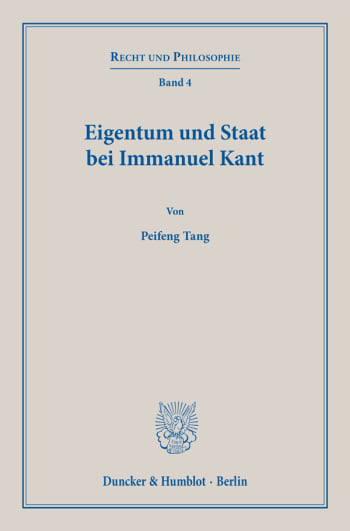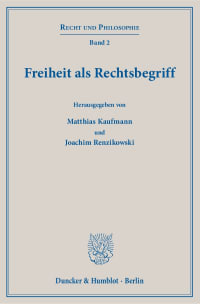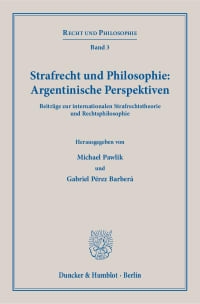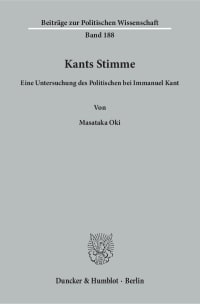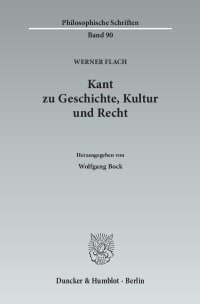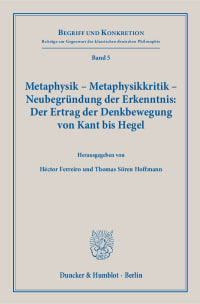Description
»Property and State in Kant's Philosophy«
In this study, Peifeng Tang analyzes the relationship between property and state in Kant's transcendental philosophy. In particular, the relationship between law and morality, the justification of property and the origin and tasks of the state are examined. Finally, the influence of Rousseau on Kant's theory of property and state is presented and thus the historical-philosophical aspect of the topic is discussed.
Overview
Einleitung
A. Systematische und begriffliche Vorklärungen
Die Kopernikanische Wende und der Begriff der Freiheit – Praktische Freiheit und Gesetze – Der Begriff des Rechts und des Allgemeinen Rechtsgesetzes – Der Fremdzwang als Ausführungsgrund des Gesetzes und die Gesetzgebung des Willens – Rechtspflicht – Einzelne Rechtsgesetze und Rechtspflichten
B. Rechtfertigung des Eigentums
Was ist Eigentum? – Rechtfertigung des Eigentums
C. Erwerb des Eigentums und Aufgabe des Staates
Die Wirklichkeit des Vernunftbegriffes des Besitzes – Exkurs: Der Begriff des Erlaubnisgesetzes – Exkurs: Die Ulpianschen Formeln, die drei leges und das Erlaubnisgesetz des Eigentumsrechts – Aufgaben des Staates
D. Rousseau-Rezeption, Verbot der Revolution und Bevorzugung der Reform
Die Rezeption Rousseaus in der praktischen Philosophie Kants – Revolutionsverbot und Reformpräferenz in der Rechtsphilosophie – Die Rezeption Rousseaus in der Geschichtsphilosophie Kants – Die Grundlage der Geschichtsphilosophie – Verbot der Revolution und Bevorzugung der Reform in der Geschichtsphilosophie – Eigentum, Revolution und Reform
Fazit
Literatur- und Sachwortverzeichnis
